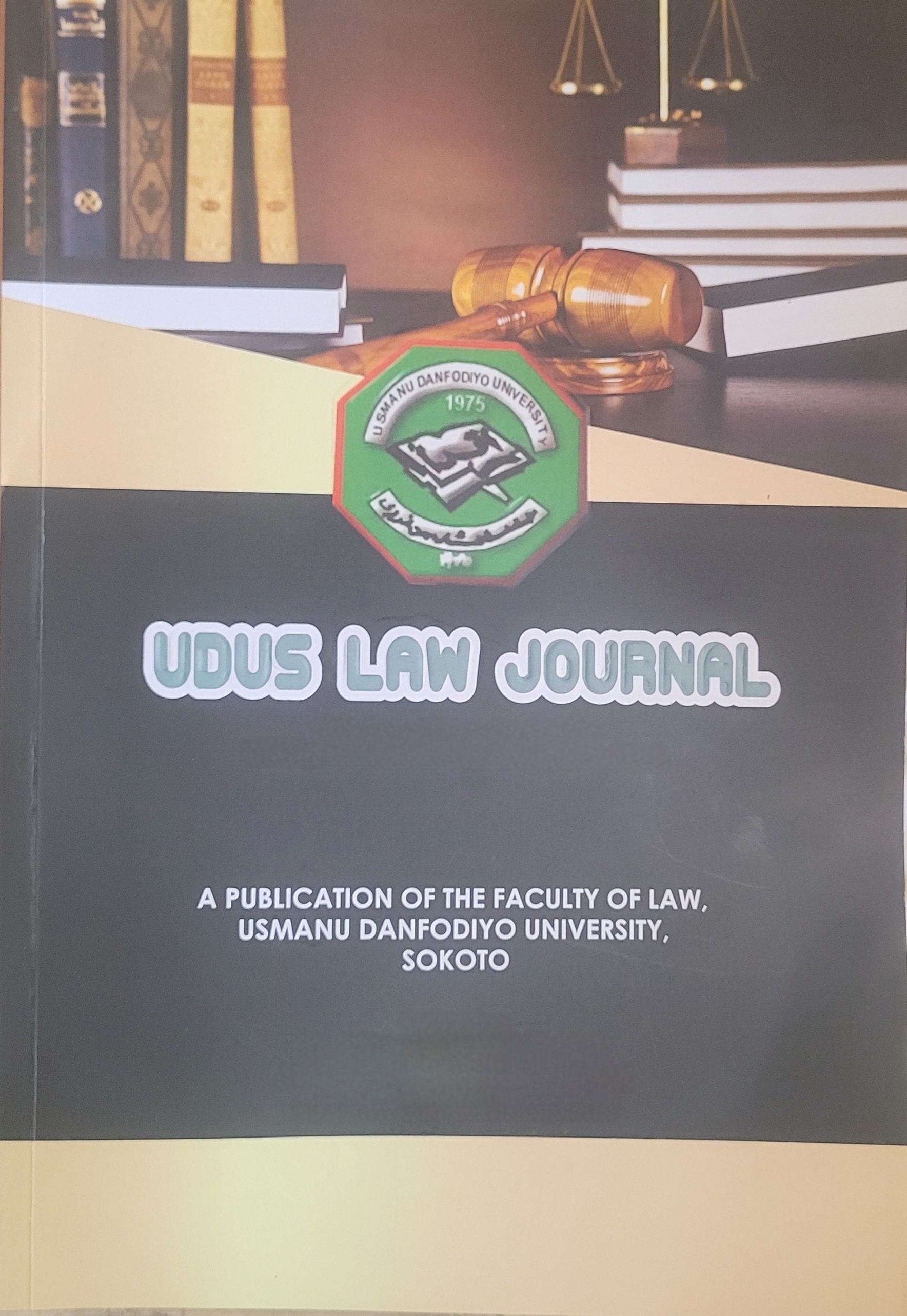Abstract
Court is an institution under judiciary, the third arm of government. It is the organ of government whose personnel appointments are based on qualifications and merit. The major functions of court are to interpret laws, punish offenders and to settle cases among aggrieved parties in Nigeria. The court is empowered to perform these functions by virtue of section 6 of the Constitution of the Federal Republic of Nigeria, 1999 (as amended). Therefore, court is enjoined to ensure that it has power to adjudicate in any matter brought before it before assuming jurisdiction to hear such matter. If a court hear and determine a matter without jurisdiction, such effort amount to nullity. This study used doctrinal methodology to examine plea bargain which affects administration of justice system and compromised agreement as infraction to jurisdiction of court as emerging legal regimes in Nigeria. It relied on Constitution of Nigeria, textbooks, case laws, journals and internet facilities. It revealed that plea bargain is a flagrant subordination of the public’s interest to the interest of criminal justice administration and it promotes a cynical view of the entire legal system. It also revealed that, court is the owner of its judgment and it can do anything over it while compromise agreement on the decision of a court is robbery of the court’s property/jurisdiction. The study recommended among others that Plea bargain should be viewed from a holistic angle of both restoration and retributive models of justice to avoid giving the impression of immunity from punishment, freedom from guilt and escape from punishment. It further recommended that court order/judgment should be obeyed and it should not be subject to variation by the parties. A court judgment should at all times remain binding between the parties and should not be superseded by a subsequent agreement made by the parties.



 National Library of Nigeria
National Library of Nigeria.jpg) Association of Nigerian Authors
Association of Nigerian Authors Nigerian Library Association
Nigerian Library Association EagleScan
EagleScan Crossref
Crossref